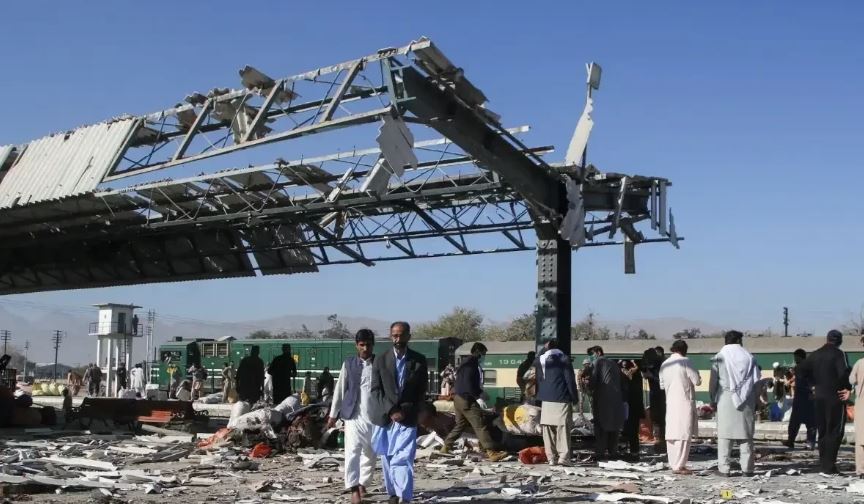
The devastating blast in the Peshawar Police Lines on January 30, 2023, was not just another tragic chapter in the ongoing saga of terrorism that has plagued Pakistan for decades. It is a stark reminder that the security situation in the region is worsening, with increasing evidence pointing to cross-border terrorism emanating from Afghanistan. The recent revelations from the Inspector General of Khyber Pakhtunkhwa (KPK) Police, confirming that the mastermind behind the attack was a defector from the KPK police and that the suicide bomber had received training in Kunar, Afghanistan, have raised serious questions about the state of security in the region, as well as the role that Afghanistan plays in harboring terrorism.
This attack and its aftermath highlight several critical issues that Pakistan must urgently address to safeguard its citizens and secure its borders. It underscores the need for heightened border security, improved intelligence cooperation, and a more robust approach to countering extremism within Pakistan’s own ranks. Furthermore, it brings into sharp focus the complex interplay between local cultural dynamics, religious extremism, and the broader geopolitical context in which Pakistan operates.
The ongoing instability in Afghanistan, particularly since the Taliban’s return to power in August 2021, has provided fertile ground for the resurgence of terrorist groups that were previously driven into hiding during the U.S. presence in the country. These groups, including the Tehrik-i-Taliban Pakistan (TTP), al-Qaeda, and others, have found new sanctuary in Afghanistan’s porous and poorly controlled border areas. The blast in Peshawar, where over 100 people were killed, is not an isolated incident but part of a broader trend of escalating violence in Pakistan linked to cross-border terrorism.
The fact that the mastermind of the Peshawar attack was a defector from the KPK police is especially alarming. It reveals the extent to which terrorist ideologies have penetrated local institutions, turning security forces—who are supposed to protect citizens—into perpetrators of violence. Despite Pakistan’s efforts to shore up security along its border with Afghanistan, including the construction of fencing and increased patrolling, terrorist groups continue to exploit the porous border and carry out attacks. The porous nature of the border, coupled with the mountainous terrain and the lack of effective control on the Afghan side, makes it an ideal route for militants to infiltrate into Pakistan.
The Taliban’s control over Afghanistan has significantly shifted the security calculus for Pakistan. Despite repeated calls from Pakistan for the Afghan Taliban to curb the activities of terrorist groups operating from Afghan soil, the response from Kabul has been underwhelming at best. The Taliban leadership continues to deny that groups like the TTP, which operate against the Pakistani state, are operating freely within their territory. The Afghan government’s lack of will—or perhaps lack of ability—to tackle this problem is evident in its public statements and its reluctance to cooperate with Pakistan on intelligence sharing and border management.
Additionally, the Afghan Taliban’s ideological stance also plays a role in this intractable situation. The Taliban’s refusal to take action against groups like the TTP is rooted in shared ideological sympathies. Both groups share a hardline interpretation of Islam, which has historically fostered an environment where terrorism thrives. The unwillingness of the Taliban to engage in meaningful dialogue with Pakistan on security issues indicates not just a lack of political will, but a deeper ideological divide.
In light of the continuing cross-border threats, Pakistan must prioritize border security as a national security imperative. This means not just constructing physical barriers, such as fences, but also ensuring comprehensive surveillance, intelligence-sharing mechanisms, and cooperation with neighboring countries. The recent border security efforts by Pakistan and Iran along their respective frontiers with Afghanistan show that such measures are possible, but they require international cooperation and a clear strategy to be effective.
Pakistan has already implemented several steps to enhance its border security, including fencing at its border with Afghanistan. While this is a positive development, it is not enough on its own. Security forces must continue to enhance their ability to monitor and patrol the border, particularly in remote and difficult-to-access areas. This requires both technological solutions—such as drones and surveillance equipment—and an increase in manpower. Pakistan must invest in improving intelligence networks and counterterrorism capabilities.
Perhaps the most worrying aspect of the Peshawar blast is the involvement of a defector from the KPK police. This incident sheds light on a disturbing trend within Pakistan—radicalized individuals within the police who have switched allegiances to terrorist groups. The fact that such individuals are capable of infiltrating the security forces underlines the need for Pakistan to address not just external threats, but internal ones as well.
The rise of extremism in Pakistan is a complex issue, shaped by a combination of factors, including the legacy of militancy, socio-political instability, and the ideological radicalization of certain segments of the population. The country’s ethnic and cultural diversity also plays a role in this, as local grievances can be exploited by extremist groups seeking to recruit. Addressing this internal threat requires a multifaceted approach, including stricter vetting processes for security personnel, de-radicalization programs, and the promotion of a counter-narrative to the extremist ideologies that are taking root in some parts of the country.
